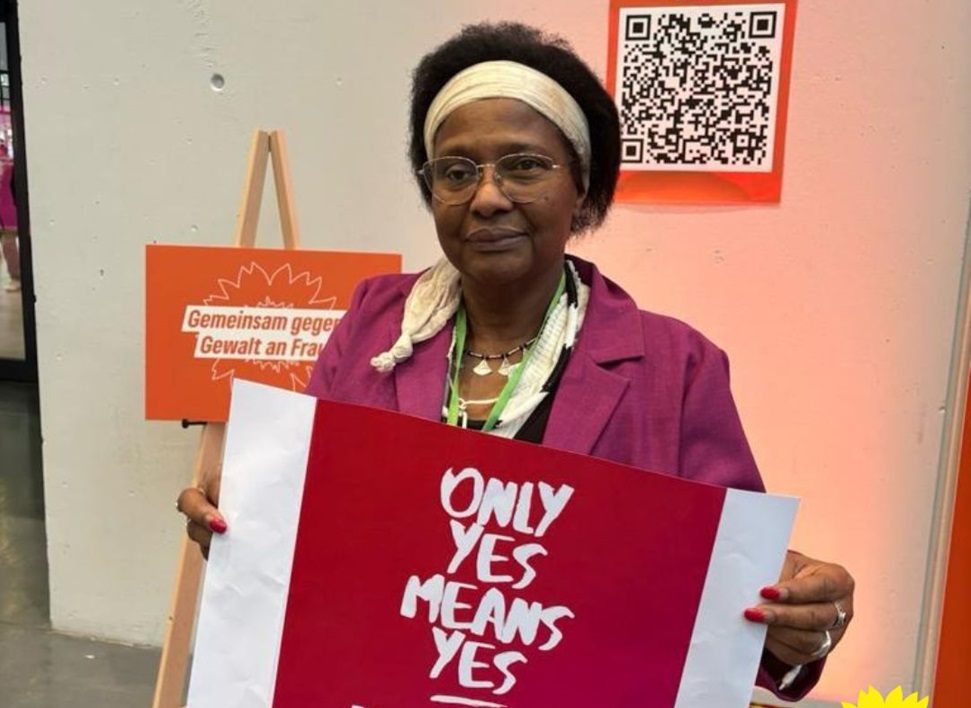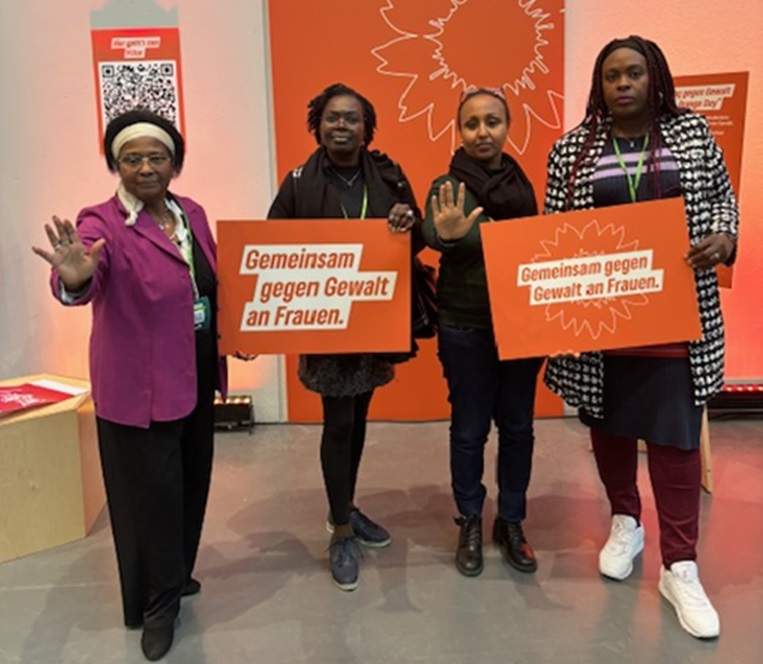
Here’s the message of Dr Pierrette Herzberger-Fofana, Member of the European Parliament representing Germany on the platform of the Green Party, to mark the International Day for the Elimination of Violence against Women 2023
——
Genesis: Remembering the Mirabal Sisters
November 25 marks the International Day for the Elimination of Violence against Women, in memory of the 3 Mirabal sisters: Patria, Minerva und Maria Teresa nicknamed “las Mariposas” (Butterflies).
In 1960, they were kidnapped and murdered with machetes by the secret service agents of the dictator Rafael Trujillo (1930-1961), President of the Dominican Republic. Their crime: Minerva, one of the sisters, had refused the advances of the dictator who had set his sights on her.
To take revenge for his refusal, which the dictator considered an affront, they were victims of a so-called “road accident” and beaten to death. Their corpses were thrown from the top of a precipice by the side of the road.
In 1981, at a meeting of Latin American and Caribbean feminists, November 25 was proclaimed the Day of Remembrance for the Victims of Violence against Women.
To commemorate this despicable crime, in 1999 the United Nations declared 25 November 1960 as the Day for the Elimination of Violence against Women. Violence against women transgresses borders and social status.

Violence against women is the most widely shared human rights violation in the world, with approximately one in 3 women having experienced violence at least once in her life. Acts of violence occur in all spheres of society in various forms, most often by the spouse regardless of social class, ethnicity or religion
All over the world, women are abused, victims of beatings, injuries, hateful messages via the Internet and sexual harassment, of obsolete traditions such as female genital mutilation that hinder the full development of girls and women.
Violence against women as a crime against humanity
Sex tourism, domestic and conjugal violence, child pornography, sexual abuse of minors, rape, honour killings or femicide, forced marriages, preferential sex selection or crimes against female foetuses are the various forms of violence that take place in many countries.
Violence is an attack on women’s physical integrity. It is also sometimes used as a weapon.
During our various missions in African, Caribbean and Pacific countries, civil society organizations have shared with us their concerns regarding and shared with us this scourge: violence against girls and women. Forced marriages and teenage pregnancies are an obstacle to the development of these countries.
Although early marriage is prohibited by the African Charter on the Rights and Welfare of the Child, each year many children are forced to marry. Every year, many girls under the age of 15 are taken out of school and given in marriage, often to people in their fifties.
Although 125 countries condemn domestic violence, it has serious consequences on the psyche of the victim and jeopardizes his or her health. More than 500 million women live in countries where domestic or partner violence is not punished.
In Europe, child pornography, sexual abuse of minors, trafficking in women and domestic violence are the most common forms. The kidnapping and trafficking of women who come especially from the countries of Eastern Europe and the Global South in order to satisfy the sexual impulses of the depraved are the new scourges facing Europe.
Trafficking in women fuels the sex industry, which is experiencing an unprecedented economic boom at the expense of thousands of children. . Trafficking in women fuels the sex industry, which is experiencing an unprecedented economic boom at the expense of thousands of children. Thousands of young girls are victims of the mirage of a Western Europe where milk and honey flowed in abundance for all.
The Istanbul Convention
The Convention is the first international treaty to establish a set of legally binding protection measures to prevent and combat violence and its eradication against women and girls. The European Union ratified the Convention on 1 June 2023. In Germany, the Istanbul Convention entered into force on 1 February 2018.
The Directive
However, some Member States of the European Union are reluctant to legislate, as well as to introduce, for example, the notion of consent. Yes, it’s yes and No, it’s no! It shouldn’t be complicated to understand. The Directive now considers cyberbullying and cyber incitement to violence or hatred as criminal offences throughout the European Union. This is a first.
We therefore have to fight a bitter battle to ensure that rape is included in the directive. Because rape, which is non-consensual sex, is a violation of women’s dignity. It must be introduced into the directive as a despicable offence, punishable by sanctions if the European Union is to become the continent that has eradicated gender violation.
 THE AFRICAN COURIER. Reporting Africa and its Diaspora! The African Courier is an international magazine published in Germany to report on Africa and the Diaspora African experience. The first issue of the bimonthly magazine appeared on the newsstands on 15 February 1998. The African Courier is a communication forum for European-African political, economic and cultural exchanges, and a voice for Africa in Europe.
THE AFRICAN COURIER. Reporting Africa and its Diaspora! The African Courier is an international magazine published in Germany to report on Africa and the Diaspora African experience. The first issue of the bimonthly magazine appeared on the newsstands on 15 February 1998. The African Courier is a communication forum for European-African political, economic and cultural exchanges, and a voice for Africa in Europe.



































